Since the beginning of Russia’s full-scale invasion in 2022, Ukraine has faced a growing need for comprehensive rehabilitation for those injured in combat. Among the most vulnerable are veterans who have lost their sight—individuals who, overnight, are plunged into complete darkness for the rest of their lives. While Ukraine’s system provides emergency medical care, there is no national program for specialized vision rehabilitation, leaving war-blinded individuals without the tools to regain independence. National Pirogov Memorial Medical University, under the leadership of Associate Professor Kateryna Hryzhymalska, responded by initiating an innovative rehabilitation program for this group. Drawing on expertise gained during her 2023 training at the University of Toronto’s Vision Rehabilitation Centre, Hryzhymalska adapted international best practices to Ukraine’s realities. In partnership with the NGO Ukrainian League of Organisations of the Blind “Modern View”, VNMU launched the “Life After War” initiative—an intensive rehabilitation camp for war-blinded veterans. Held in 2024 and 2025, the camp offers personalised training in mobility, daily living skills, digital literacy, and psychological support. Activities range from using a white cane to cooking, sports, and mental health sessions. The program involves ophthalmologists, psychologists, physiotherapists, and volunteers, creating a multidisciplinary model that is both replicable and scalable. Financial support from Women in Ophthalmology, the Danish Association of the Blind, and other donors ensures sustainability. By combining medical expertise, social engagement, and international collaboration, this initiative restores independence, dignity, and hope—turning personal tragedy into a new beginning.

RUNNER-UP
Ukrainian Social Innovation and Engagement Award Award
Life After War: Vision Rehabilitation for Blind Veterans
RUNNER-UP Ukrainian Social Innovation and Engagement Award Award
National Pirogov Memorial Medical University - Ukraine
"From Loss of Sight to a New Vision"
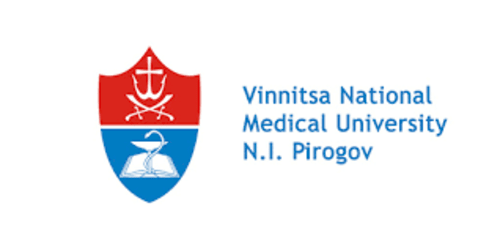
Have a say and vote for this entry to win the People's Choice Award!
500 points per vote
Provide your email address and click on "vote". You will then receive an email that enables you to verify your vote by clicking on a link.
1500 points for each share/re-post; 500 points for each like
This entry has not provided any social media links for community voting.
Summary
Key People

Kateryna Hryzhymalska
Associate Professor, Head of the Ophthalmology Department
Department of Ophthalmology,
National Pirogov Memorial Medical University

Yuliia Saldan
Associate Professor
Department of Ophthalmology,
National Pirogov Memorial Medical University

Svitlana Dmytrenko
Professor
Department of Dermatology and Venereology,
National Pirogov Memorial Medical University

Hlib Holovaty
Assistant
Department of Medical Psychology and Psychiatry,
National Pirogov Memorial Medical University

Olesia Perepechenko
President
NGO “Modern View”,
Ukrainian League of Organisations of the Blind
Acknowledgements
We gratefully acknowledge the financial and organisational support from international partners including Women in Ophthalmology and the Danish Association of the Blind.
Images
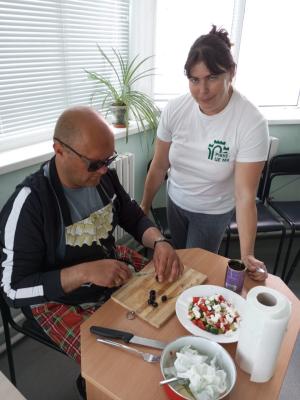
Autonomy in the kitchen
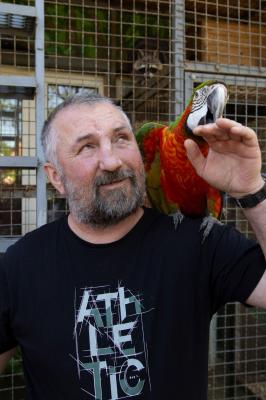
In the zoo
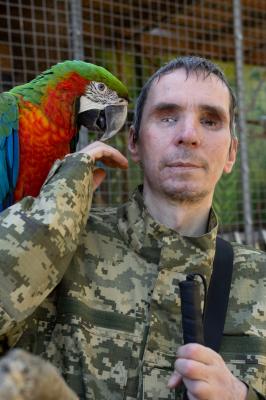
With a friend
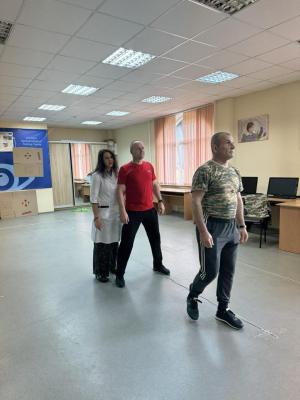
Orientation in the space
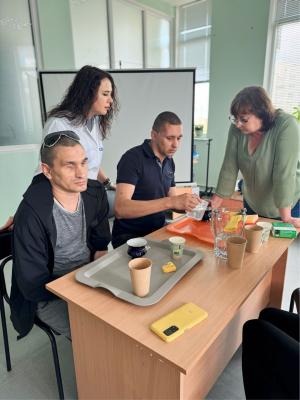
Working with liquids
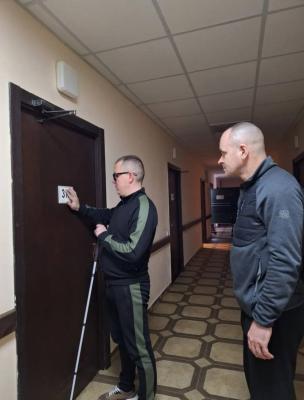
Reading the door number
IMPACT STORY
Impacting lifes
The “Life After War” initiative addresses one of the most overlooked consequences of the war in Ukraine: sudden, irreversible blindness among combat veterans. Without a national program for vision rehabilitation, these individuals often face isolation, dependence, and loss of purpose.
Since 2024, Vinnytsia National Medical University (VNMU), in partnership with the NGO Ukrainian League of Organisations of the Blind “Modern View”, has conducted two intensive rehabilitation camps for war-blinded veterans. Each participant receives a personalised plan, covering mobility training with a white cane, daily living skills, digital literacy, sports, and psychological support. Sessions are led by a multidisciplinary team—ophthalmologists, psychologists, physiotherapists, and volunteers—ensuring a holistic approach.
One veteran’s story illustrates the transformation: injured in combat and left completely blind, he arrived at the camp unable to navigate independently or perform basic tasks. After two weeks of training, he confidently moved through the city with a cane, prepared his own meals, and reconnected with friends online. He described the experience as “a return to life.”
International support from Women in Ophthalmology, the Danish Association of the Blind, and other donors has been critical to its success. This initiative demonstrates how academic expertise, civic engagement, and global collaboration can restore dignity, rebuild confidence, and create pathways for independent living.
LEARNINGS
Lessons learned
The “Life After War” initiative pioneered a new model of vision rehabilitation tailored to the unique challenges faced by war-blinded veterans in Ukraine. Unlike traditional rehabilitation systems that primarily serve people born blind or gradually losing sight, our approach focuses on the immediate and traumatic nature of sudden blindness caused by war injuries.
A key innovation was adapting global best practices—learned during an international training at the University of Toronto—to Ukraine’s limited infrastructure and resources. For example, we introduced accessible daily skills training (cooking, personal care, mobility) in a modular camp setting, supported by local professionals and volunteers. Another innovative aspect was the integration of emotional and psychological support into physical rehabilitation, creating a holistic and human-centered recovery journey.
Collaborating closely with veterans and advocacy groups allowed the program to be co-designed with those it serves, making the engagement both meaningful and empowering.
Our main takeaway is that successful rehabilitation is not about restoring what was lost, but building new pathways for autonomy. We advise others to engage end-users from the very beginning, localize international expertise, and leverage multidisciplinary collaboration—even in resource-constrained settings.
FUTURE PLANS
What's coming?
The next phase of the “Life After War” initiative focuses on sustainability and national impact. Our goal is to institutionalise vision rehabilitation as an integrated part of veteran support in Ukraine.
To that end, the Department of Ophthalmology at VNMU is working to establish a new national specialty: “Sensory Rehabilitation Specialist”. We have secured a Ukrainian patent (No. 13511) for this qualification, and the Ministry for Veterans’ Affairs has already provided official support. Applications for approval are underway at the Ministries of Health and Education.
Additionally, we plan to expand the number and geographic reach of rehabilitation camps. By training local professionals, building volunteer networks, and creating open-access training modules, we aim to scale the model to other regions.
Financially, we continue to engage donors and international organisations such as Women in Ophthalmology and the Danish Association of the Blind. In the long term, our vision includes a national center for vision rehabilitation and a digital platform connecting blind veterans with services, peers, and ongoing education.
Our work has only just begun. With every step, we strive to turn recovery into transformation—for individuals, communities, and systems.

